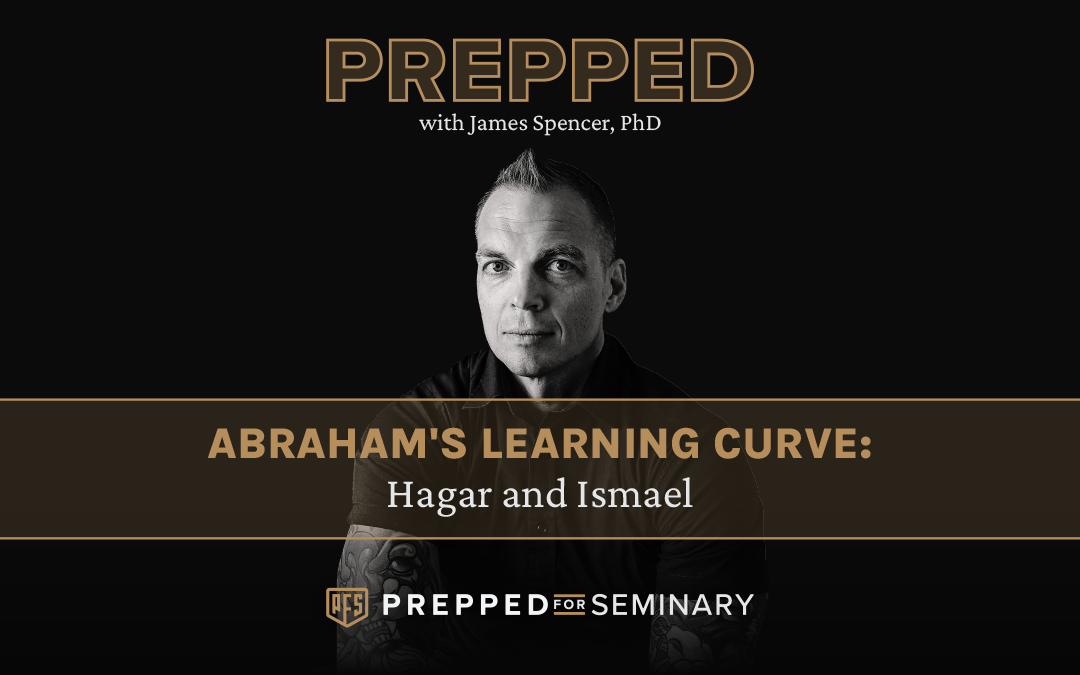https://podcast.preppedforseminary.com/abrahams-learning-curve-hagar-and-ismael/
Can You Wait on God When the Promise Feels Delayed?
God promised Abraham something big—a son. Not just a child, but an heir who would carry forward a promise that would bless the world.
But that promise didn’t come quickly.
In Genesis 15–21, we see Abraham wrestle with that delay. He believes God, but he also tries to help God out. He takes a culturally accepted shortcut. The result? A complex family, deep pain, and a reminder that God’s ways don’t need our shortcuts—they need our trust.
The Problem: A Promise Without a Path
God told Abraham he would be the father of many. But Abraham and his wife Sarah were getting old—and they didn’t have any kids.
So, they tried to “solve” the problem. Sarah gave her servant Hagar to Abraham, and Hagar had a son named Ishmael.
That may sound strange to us, but in ancient times, it was common. If a wife couldn’t have children, her servant could be a surrogate. That was their plan.
But it wasn’t God’s plan.
Faith, but Not Full Understanding
Abraham did believe God. Genesis 15:6 says that Abraham believed God’s promise, and God counted it as righteousness.
But believing what God will do isn’t the same as understanding how God will do it.
So Abraham believed the “what”—you’ll have a son—but got the “how” wrong by sleeping with Hagar. Instead of waiting for God’s timing, he acted on human logic and cultural norms.
The Fallout: Family Tensions and Spiritual Lessons
Once Hagar became pregnant, the situation got messy. She looked down on Sarah. Sarah got angry and treated her harshly. Eventually, Hagar ran away.
But God met Hagar in the wilderness. He told her to return and promised that her son, Ishmael, would become a great nation. God was gracious—even when things didn’t go according to plan.
God Still Had a Bigger Plan
For over a decade, Abraham thought Ishmael might be the promised heir. But in Genesis 17, God made it clear: the promised son would come through Sarah.
This wasn’t just about having a child. It was about learning to trust God’s power more than human plans.
Abraham was 99 when God repeated the promise. Sarah was 90. They laughed when they heard it—not because they didn’t believe, but because it seemed impossible.
Still, God said, “You will have a son. His name will be Isaac.”
A Costly Decision: Sending Ishmael Away
When Isaac was born, the joy was real, but so was the conflict. Ishmael mocked Isaac, and Sarah asked Abraham to send Hagar and Ishmael away.
This broke Abraham’s heart. Ishmael was still his son.
But God told Abraham to trust Him again. “Through Isaac shall your offspring be named,” God said. And yet, He also promised to bless Ishmael and make him a great nation.
God Is Faithful to Everyone Involved
This is what makes God’s character so beautiful. He didn’t just bless Isaac, the child of promise. He also cared for Hagar and Ishmael, those caught in the mess of human decisions.
Even when we make mistakes or try to “help” God along, His mercy remains.
God’s Choice Isn’t Always What We Expect
In ancient cultures, the firstborn son usually got an inheritance and a blessing. But God chose Isaac, not Ishmael.
Later, He would choose Jacob, not Esau. Then came David, the youngest of Jesse’s sons.
God isn’t bound by tradition or human systems. He chooses according to His plan, not by what the world values.
Reflection Questions
- Have you ever tried to “help” God by taking matters into your own hands? What happened?
- Where in your life do you need to wait on God, even if it doesn’t make sense?
- What promises of God are hard for you to believe right now?
- Do you believe God is faithful, even when your plans fall apart?
- How can you honor God’s timing more than your own logic or culture?
